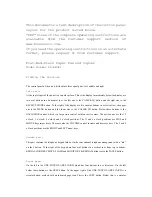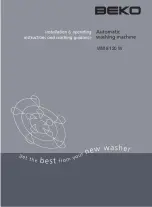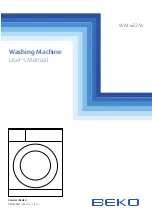
OPERATION
37
6550D 330330 (5--98)
SWEEPING AND BRUSH INFORMATION
Pick up oversized debris before sweeping. Flatten
or remove bulky cartons from aisles before
sweeping. Pick up pieces of wire, twine, string,
etc., which could become entangled in brush or
brush plugs.
Plan the sweeping in advance. Try to arrange long
runs with minimum stopping and starting. Sweep
debris from very narrow aisles into main aisles
ahead of time. Do an entire floor or section at one
time. Sweep as straight a path as possible. Avoid
bumping into posts or scraping the sides of the
sweeper. Overlap the brush paths.
Avoid turning the steering wheel too sharply when
the machine is in motion. The machine is very
responsive to the movement of the steering
wheel. Avoid sudden turns, except in
emergencies.
Speed up the engine to (Fast 2) when picking up
light litter. This will improve both litter pickup and
hopper loading. Do not use the (Fast 2) speed in
dusty environments. The machine can dust and
clog the hopper dust filter. Operate the engine in
the (Fast 1) position when picking up general
debris.
For best results, use the correct brush type for
your sweeping application. The following are
recommendations for main and side brush
applications.
Nylon 8-double Row Main Brush
--
Recommended for general sweeping, and has
good hopper loading. Nylon has the longest life of
the bristle types. Use this brush for sweeping
rough or irregular surfaces.
Polypropylene and Wire 8-double Row Main
Brush
-- The wire bristles loosen slightly packed
soilage and heavier debris. The polypropylene
bristles sweep up the debris with excellent hopper
loading.
Crinkle Wire 8-double Row Main Brush
-- The
stiff wire bristles cut through compacted grime,
hard to sweep dirt, and dirt mixed with oil, grease,
or mud. This brush is recommended for foundry
sweeping where heat may melt synthetic bristles.
This brush has good hopper loading ability, but is
not recommended for dusty applications.
07817
08002
















































